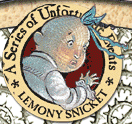
True Grit Lit
Troy -- Shield of Thunder
David Gemmell
Bantam Press
Have you ever wondered why you like some books and don't like others? As someone who reads almost anything, I have often pondered matters of taste. For me, I think my likes/dislikes are somehow tied to genre. You already know that I'm not a big fan of chicklit --far too much self-indulgent navel gazing in my opinion. In fact, if you chucked the whole memoir genre, I don't think we'd lose too many good books. I definitely don't care for those massive historical tomes that you can only imagine being read by some guy whose smoking jacket smells like stale tobacco and last night's brandy. Self-help books? Uh, not so much ... if I wanted advice from harmless crackpots, I'd ask my family and friends.
So, what does the girl like? Well, believe it or not, I quite enjoy historical fiction that is geared toward a male audience. Go figure ... the feminist in me is shrinking from the keyboard even as I type. Taking place during the time of the Trojan War, Shield of Thunder recounts/rewrites the tales of fabled heroes (Aeneas, Hector, Odysseus) and introduces some new characters into the mix. There is a lot of blood and guts and gore in this novel (not so much sex -- sorry ladies!) and Gemmel makes the characters come alive even as he is describing their grisly deaths.
What I like best about this novel is the pace. While Gemmel is a master of characterization, he doesn't belabour character development and the plot just zips along. At the same time, he also adds his own dimensions to characters that have, to some degree, become firmly etched in western literary tradition. While I didn't need break out either Virgil or Homer to read this book, having them in the background definitely enhanced my enjoyment of the work.
And now for the bad news ... I was very saddened to learn that Gemmel passed away this summer from complications following heart surgery. He was only 57. At the time of his death, he had 70,000 words completed of the final installment of the Troy trilogy. I read somewhere that the outline is finished and his wife, Stella, will put out the third book. Here's hoping that it is a worthy tribute to a good writer.




